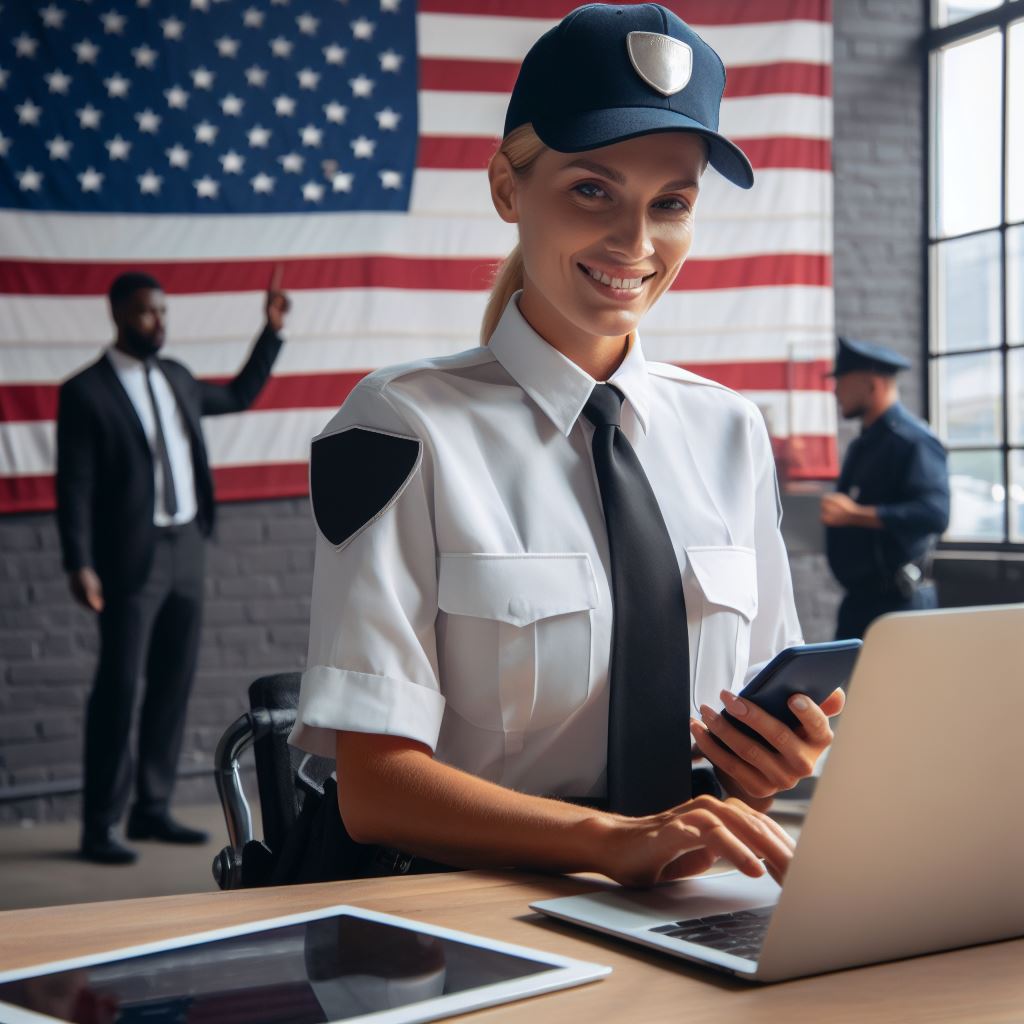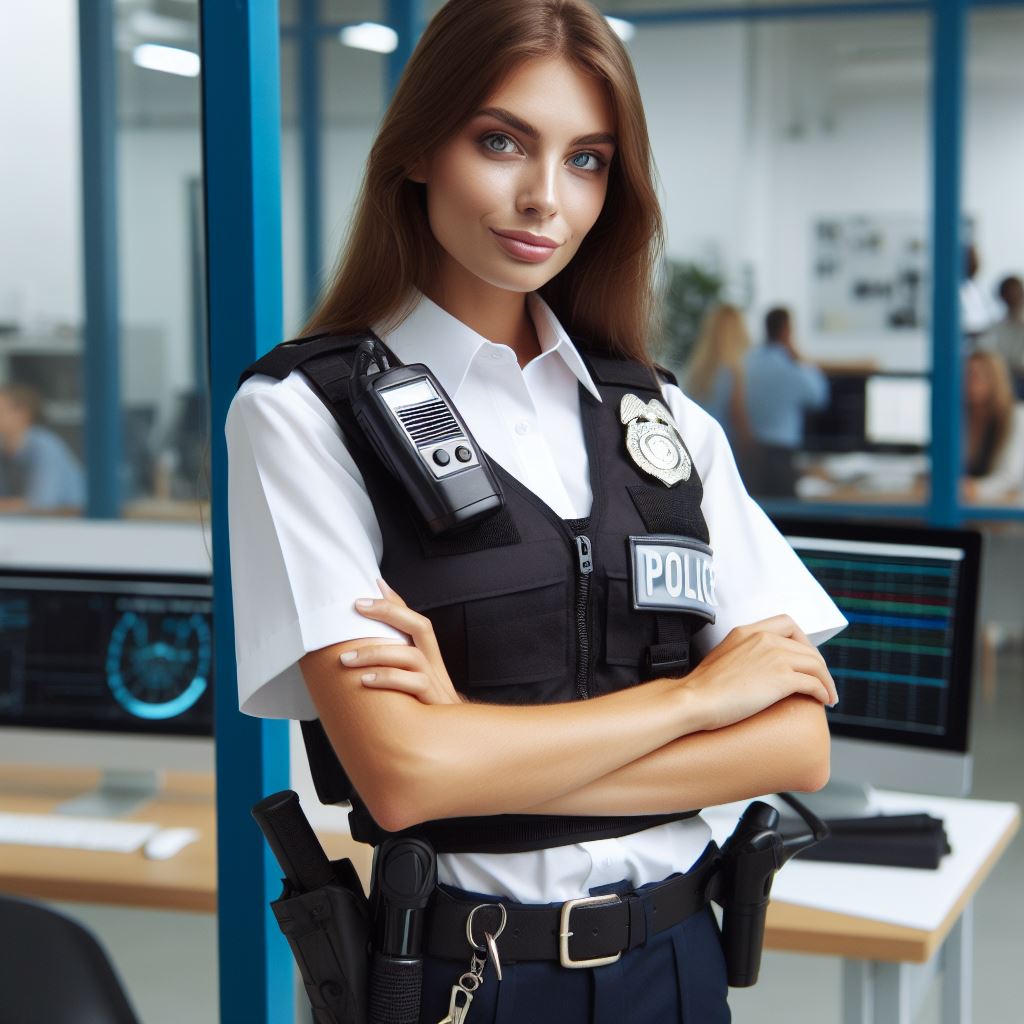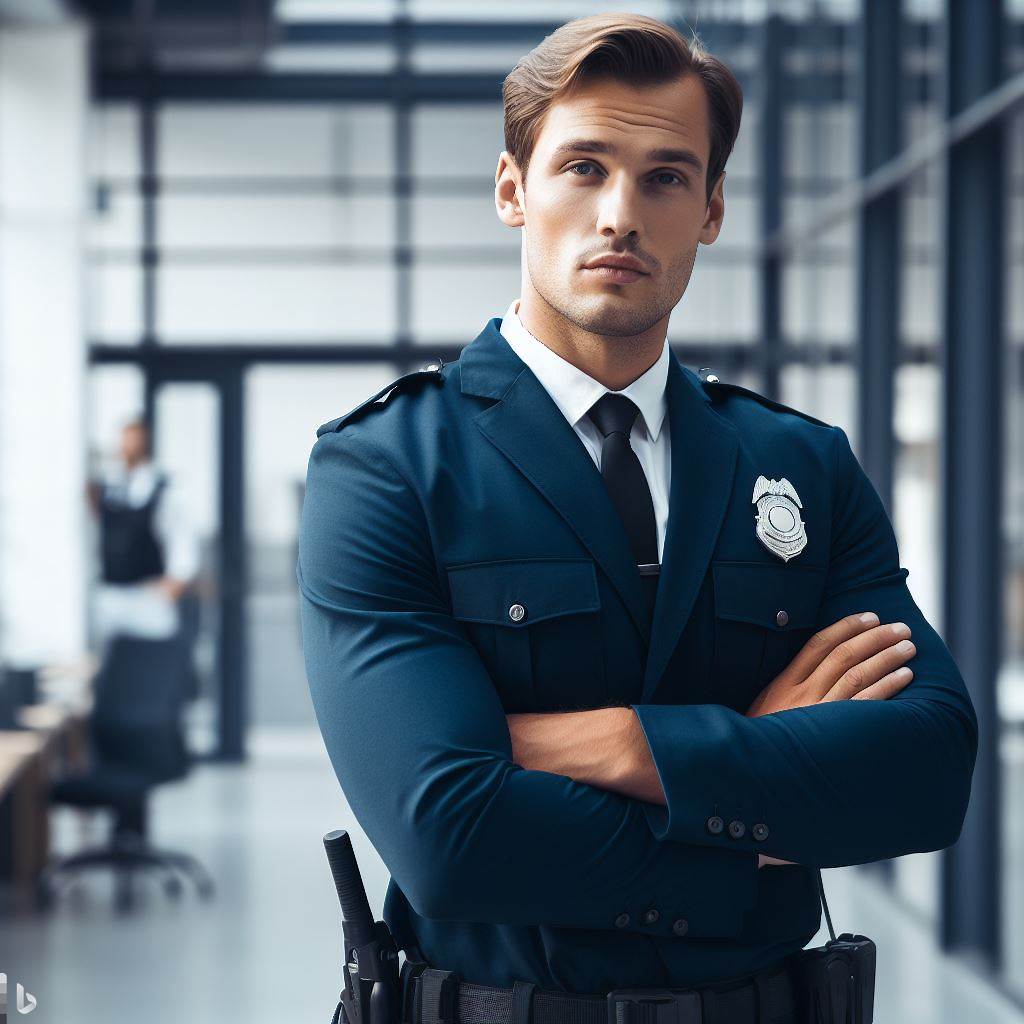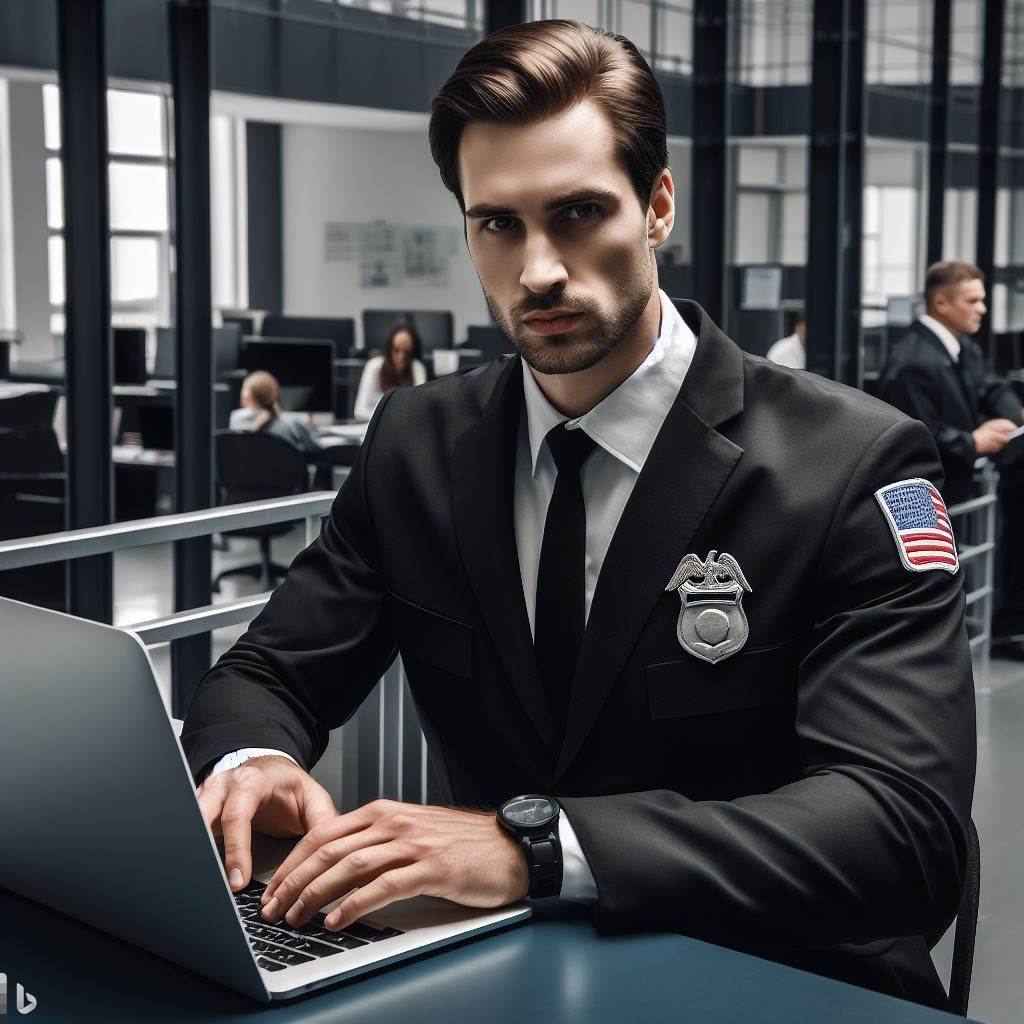Introduction
Navigating the intricate landscape of safety, security guards in the United States stand as frontline protectors, entrusted with ensuring the well-being of people, safeguarding valuable assets, and maintaining the security of diverse environments.
In this exploration, we delve into the pivotal realm of safety protocols, examining the indispensable role they play in the daily operations of security professionals across the nation.
From the bustling urban centers to remote facilities, the responsibilities of U.S. security guards are varied and demanding.
As we embark on this journey, the spotlight is on the essential safety equipment that forms the backbone of their operations, ensuring a robust and proactive approach to security in an ever-evolving world.
Importance of Safety Protocols for Security Guards
Safety Protocols Ensure Security and Well-being
Safety protocols are crucial in maintaining the security and well-being of individuals and property.
By implementing these protocols, security guards can effectively reduce risks and prevent potential threats.
They play a vital role in providing a safe environment for everyone, giving peace of mind and confidence to people.
These protocols prioritize the safety and protection of individuals, preventing accidents, injuries, and property damage.
Security guards must be well-trained and equipped with the necessary knowledge to implement these protocols efficiently.
Security Guards’ Responsibility in Upholding Safety Measures
Have an inherent responsibility to uphold safety measures and enforce security protocols.
They are the first line of defense in emergency situations, and their preparedness is essential in preventing and mitigating risks.
Guards are trained to monitor and identify threats, respond appropriately, and take necessary actions to maintain safety.
They must ensure that safety equipment is in good working condition and accessible when needed.
Proactive planning and efficient execution of safety protocols ensure a quick response to emergencies, minimizing potential harm.
Security guards are accountable for ensuring the safety of individuals and property, which requires diligence, vigilance, and effective communication.
Read: Rituals and Traditions in U.S. Firefighting Culture
Importance of Safety Protocols
Prevention of Threats
Safety protocols help security guards prevent threats before they escalate into critical situations.
Regularly conducted risk assessments and implementing necessary preventive measures reduce vulnerability.
Risk Reduction
Well-established safety protocols minimize risks associated with criminal activities, accidents, and emergencies.
Security guards’ presence and adherence to protocols create a deterrent effect, discouraging potential wrongdoers.
Efficient Emergency Response
Adhering to safety protocols ensures security guards can respond swiftly and effectively to emergency situations.
Regular training equips them to handle different scenarios, enabling them to save lives and mitigate damage.
Protection of Individuals and Property
Implementing safety protocols protects the physical safety of individuals and prevents theft or damage to property.
Guards’ vigilance, combined with protocols, creates a secure environment for residents, employees, and customers.
Confidence and Peace of Mind
Safety protocols assure people that their well-being is prioritized, creating a sense of confidence and peace of mind.
Whether in public places, offices, or residential areas, the presence of security guards and their adherence to protocols foster a safer atmosphere.
In addition, safety protocols are essential for security guards to fulfill their duty of protecting individuals and property.
Adhering to these protocols ensures security and well-being, preventing threats and responding efficiently in emergencies.
By understanding and implementing safety measures, security guards contribute to creating a secure environment for all.
The importance of these protocols cannot be overstated, as they are the foundation of effective security operations.
Continuous training, regular reviews, and updates are necessary to guarantee their efficacy in various situations.
Read: Balancing Personal Life & Policing: Officer Stories
Essential Equipment for U.S. Security Guards
Uniform and Protective Gear
- Having a standardized uniform is crucial for identification and maintaining professionalism
. - Security guards should be equipped with protective gear such as bulletproof vests, helmets, and gloves.
Communication Devices
- Reliable communication devices play a significant role in ensuring effective security operations.
- Common communication equipment includes two-way radios, earpieces, and smartphones for quick and clear communication.
Surveillance and Monitoring Tools
- Security guards must have access to surveillance cameras and monitors to ensure optimal monitoring.
- Alarm systems, motion sensors, and access control systems contribute to maintaining overall safety and security.
Defensive Equipment
- Non-lethal weapons like pepper spray and batons are utilized by security guards for self-defense.
- Proper training and strict adherence to usage protocols are essential for the effective utilization of defensive tools.
First Aid and Medical Supplies
- Having basic first aid and medical supplies readily available is of utmost importance for emergency situations.
- Security guards should be trained in basic first aid and emergency response to provide immediate assistance when needed.
Read: The Relationship Between U.S. Firefighters and EMTs

Training and Compliance with Safety Protocols
Necessity for security guards to undergo extensive training on equipment usage and safety protocols
- Proper training ensures security guards are proficient in handling and utilizing various equipment effectively.
- Training equips security guards with the necessary skills to respond quickly and appropriately to different situations.
- By undergoing extensive training, security guards can confidently operate equipment without endangering themselves or others.
- Training sessions focus on familiarizing security guards with the specific safety protocols associated with each equipment.
- Security guards who have undergone comprehensive training are better prepared to handle emergencies and ensure public safety.
Training and compliance with safety protocols are crucial aspects of a security guard’s responsibilities.
Proper training equips security guards with the necessary skills and knowledge to handle and utilize equipment effectively while adhering to safety protocols.
By emphasizing the necessity for extensive training, security guards can enhance their capabilities and be better prepared to respond to various situations.
During training sessions, security guards learn about the specific safety protocols associated with each piece of equipment they may encounter on the job.
This training ensures they understand how to operate the equipment safely, minimizing the risks to themselves and others.
Comprehensive training allows security guards to react quickly and appropriately to emergencies, further promoting public safety.
Importance of keeping up with the latest safety regulations and industry standards
- Regularly updating knowledge of safety regulations allows security guards to adapt to changing security landscapes.
- Adhering to industry standards ensures security guards provide quality service and maintain professionalism.
- Staying informed about the latest safety regulations helps security guards prevent accidents and minimize risks.
- Security guards must familiarize themselves with any updates or changes in safety protocols to perform their duties effectively.
- By staying up-to-date, security guards can enhance their credibility and maintain a trustworthy reputation in the industry.
Elevating Security Guard Effectiveness Through Ongoing Training and Compliance
Security guards must stay updated with the latest safety regulations and industry standards.
The security landscape continually evolves, and new safety regulations are introduced to address emerging threats.
By keeping abreast of these changes, security guards can adapt their practices to ensure compliance and maintain a high level of professionalism.
Adhering to industry standards is also vital for security guards. By adhering to these standards, security guards provide consistent and reliable service, which instills confidence in their clients.
Following industry standards also helps prevent accidents and ensures security guards are knowledgeable about best practices to minimize risks effectively.
Regularly updating their knowledge of safety regulations and industry standards is essential for security guards.
By doing so, they can continuously improve their skills and expertise in their field. Security guards must make a concerted effort to remain up-to-date with any updates or changes in safety protocols.
This preparation ensures guards always operate according to the latest guidelines.
By prioritizing training and compliance with safety protocols, security guards can enhance their professionalism, credibility, and overall effectiveness.
Clients and the general public rely on security guards to maintain a safe environment, and proper training and adherence to safety regulations are paramount in fulfilling this responsibility.
In fact, adequate training and compliance with safety protocols are fundamental to the role of security guards.
Extensive training and staying updated on safety regulations and industry standards equip security guards to handle their responsibilities effectively and maintain public safety.
Transform Your Career Today
Unlock a personalized career strategy that drives real results. Get tailored advice and a roadmap designed just for you.
Start NowRead: Surviving High-Risk Scenarios: Tips from U.S. Fire Vets
Learn More: Understanding the CSI Effect on US Detective Work
Conclusion
A solid set of safety protocols is vital for U.S. security guards to effectively perform their duties. By adhering to these protocols, they ensure the safety and security of individuals and property.
Throughout this chapter, we have discussed several essential pieces of equipment that are instrumental in guaranteeing the safety of security guards and those they protect. These include:
- Surveillance cameras and video monitoring systems for constant surveillance.
- Metal detectors for screening individuals and preventing unauthorized objects from entering.
- Two-way radios for seamless communication and coordination.
- Fire extinguishers for promptly responding to any potential fire hazards.
- First aid kits for providing immediate medical assistance in case of injuries.
Each of these pieces of equipment plays a fundamental role in the overall safety and security strategy implemented by U.S. security guards.
They enable guards to identify threats, communicate effectively, and respond swiftly in emergency situations.
This ensures the well-being of both individuals and properties they are entrusted to protect.
Safety protocols and the use of appropriate equipment are non-negotiable factors that contribute to the success of U.S. security guards in their mission to maintain safety and security.




